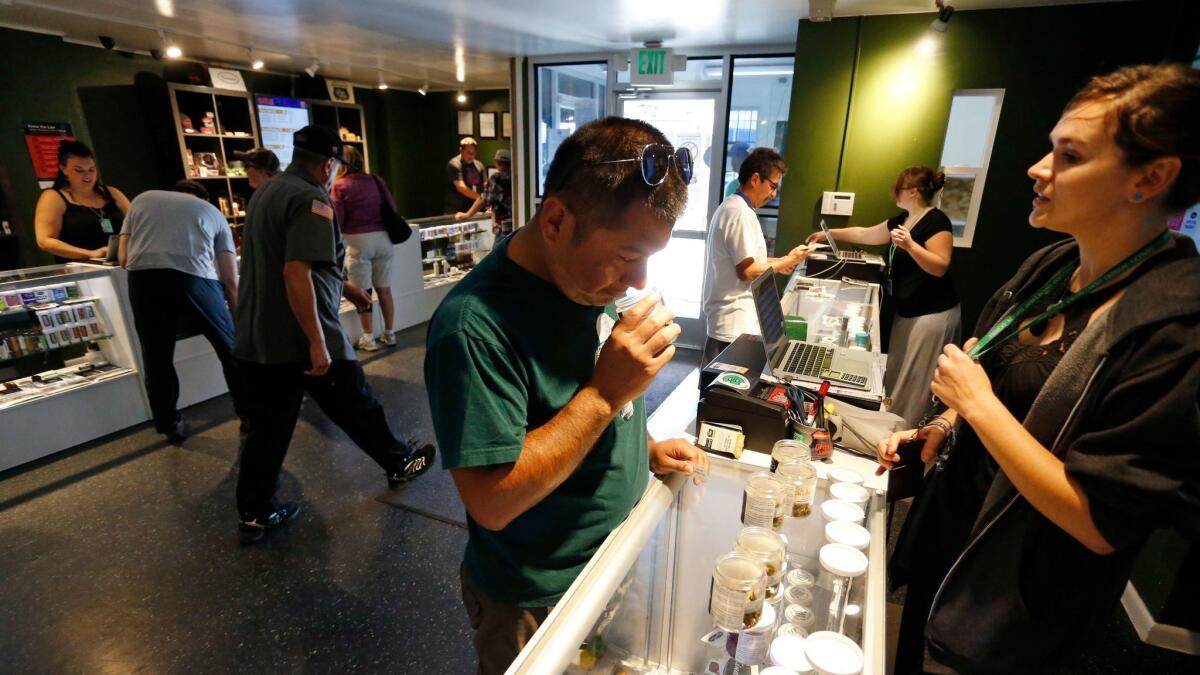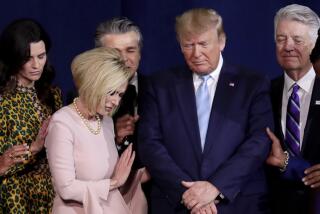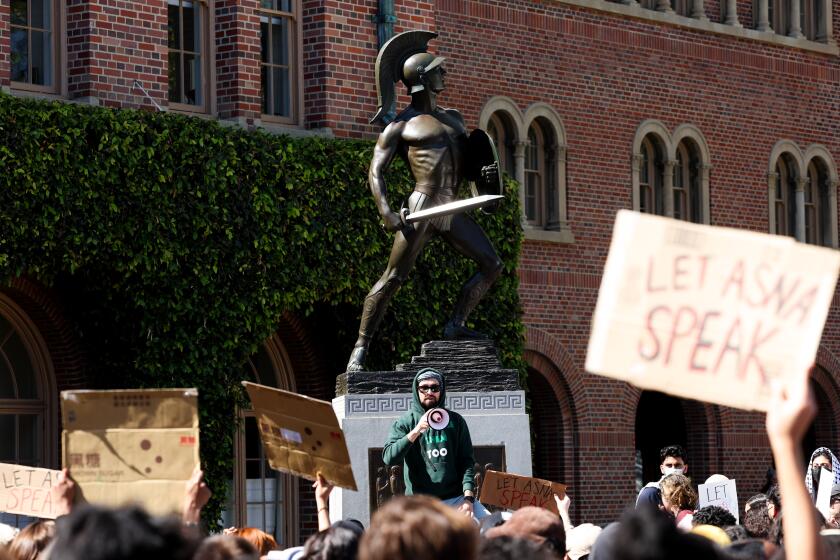Opinion: If President Trump wants to help American businesses, he should start by legalizing marijuana

Election Day 2016 awarded mixed fortunes for proponents of marijuana legalization. Pot measures passed in eight states, including California, bringing the number of states with access to some form of legal marijuana to 28. But the glee subsided as it became clear Donald Trump would be president, and fear set in that the progress gained for legalization during President Obama’s eight years would be rolled back.
These fears quickly mounted when Trump tapped Sen. Jeff Sessions to be his attorney general, an outspoken drug reform opponent who, in the 1980s, famously joked about the Ku Klux Klan — “I thought those guys were OK until I learned they smoked pot.” During his confirmation hearings, Sessions didn’t rule out reinstating federal enforcement on the national marijuana ban, departing from the Obama administration’s position of staying out of states’ business.
Trump doesn’t seem to have a problem differing with his cabinet appointees on a variety of issues, and marijuana may be no different. It’s understood he nominated Sessions because they share a tough immigration stance, not necessarily Sessions’ views on drugs. Trump himself has been all over the board on pot, expressing support for medical marijuana but also concerns about Colorado, where it’s recreationally legal. He generally seems to favor leaving it up to the states to decide.
If his inauguration speech was any indication, Trump is doubling down on populism — and legalizing pot is incredibly popular.
Sure, it’s hard to picture Trump as marijuana’s champion. Unlike the last three presidents, Trump claims he’s never toked. He doesn’t drink, he orders his steak well-done and it’s unlikely anyone will ever pass a blunt to the self-described germaphobe.
But if legalizing marijuana federally isn’t on Trump’s legislative agenda, it should be. And a conservative Congress should back him. It’s politically expedient, fits neatly into Trump’s game plan and there are principled conservative arguments to be made on legalization’s behalf.
Outside of his core issues, our new president is no ideologue, and instead seems to be fixated on — and can be swayed by — public opinion. If his inauguration speech was any indication, Trump is doubling down on populism — and legalizing pot is incredibly popular.
The latest Gallup poll shows 60% of Americans favoring legalization, including 77% of 18- to 34-year-olds. With some of the weakest approval ratings for an incoming president, he should be looking to capitalize on low-hanging-fruit policies like these.
Trump shouldn’t worry too much about legalization alienating his base. The same Gallup poll shows that 42% of Republicans support legalization, up from 20% in 2005. And if anyone needs convincing, Trump can make the case.
He can appeal to the right by reminding us that the government isn’t our mommy. We’ve already learned the lesson that prohibition doesn’t work from alcohol, a far more dangerous drug. Enforcement of prohibition is a pointless and wasteful priority. After all, why should the government work so hard to keep people from smoking weed when China is manipulating its currency and Islamic State is burning people alive in cages?
Perhaps most importantly, however, legalization makes sense fiscally.
If there’s one issue Trump has been consistent on since he launched his presidential bid, it’s economic protectionism. Today, the American marijuana industry employs 100,000 to 150,000 people nationally. Marijuana spending is estimated at $30 billion annually, according to market-research firm the Cowen Group, but only a fifth of that is spent on legal products. If legalized, the market is expected to grow to $50 billion annually by 2026.
For the same reasons Trump believes we should be buying cars and air-conditioners manufactured domestically, it follows that he should be making every effort to ensure America dominates the global marijuana industry. Americans should be smoking American weed. This requires the government’s ban be lifted so the market can flourish.
Legalization should be particularly attractive to Trump and his base, considering the main competitors to America’s pot industry are the very criminals and gangs he likes to target in his speeches. In 2008, nearly two-thirds of the pot consumed in the United States came from Mexico, according to the Rand Corp. Since then, Mexican drug cartels have had to compete with American pot farms operating in an increasingly legal landscape that produces a higher quality product and drives profits down.
Today, consumption of Mexican weed in America has been decreased to less than a third, according to an estimate by Alejandro Hope, a Mexico City based security and drug analyst. Full American legalization may put the nail in the coffin on cartel profits from weed. Trump knew this in 1990 when he said, “We’re losing badly the war on drugs. You have to legalize drugs to win that war. You have to take the profit away from these drug czars.”
Finally, legalizing marijuana would allow Trump to make good on his campaign promise to help “inner-cities.” Instead of paying lip service to urban communities and insulting them with rhetoric describing them as crime-ridden, Trump could actually help those communities by legalizing pot, and making sure no one else has their life ruined because they got caught smoking a joint.
Trump could go even further by pushing criminal justice reforms, like those California is benefiting from in Proposition 64, which allowed nonviolent pot offenders to be resentenced or have their records cleared.
The policy benefits of legalization are many, and Trump shouldn’t wait to capitalize on the political opportunity. Legalization would be a deal that allows the government to save on the costs of enforcing prohibition and fighting a failing drug war. Pot would become safer as it becomes controlled and regulated, and the government could do a better job at youth drug prevention. Taxation from legal pot sales will provide state and local governments a healthy revenue stream, at the expense of our trade competitors. Most importantly, it would shore up support for his presidency from demographics he needs, while growing the economy and jobs.
That would be a lot of winning.
Mark Stefanos is a Los Angeles-based writer and capitalist.
Follow the Opinion section on Twitter @latimesopinion and Facebook
More to Read
A cure for the common opinion
Get thought-provoking perspectives with our weekly newsletter.
You may occasionally receive promotional content from the Los Angeles Times.






